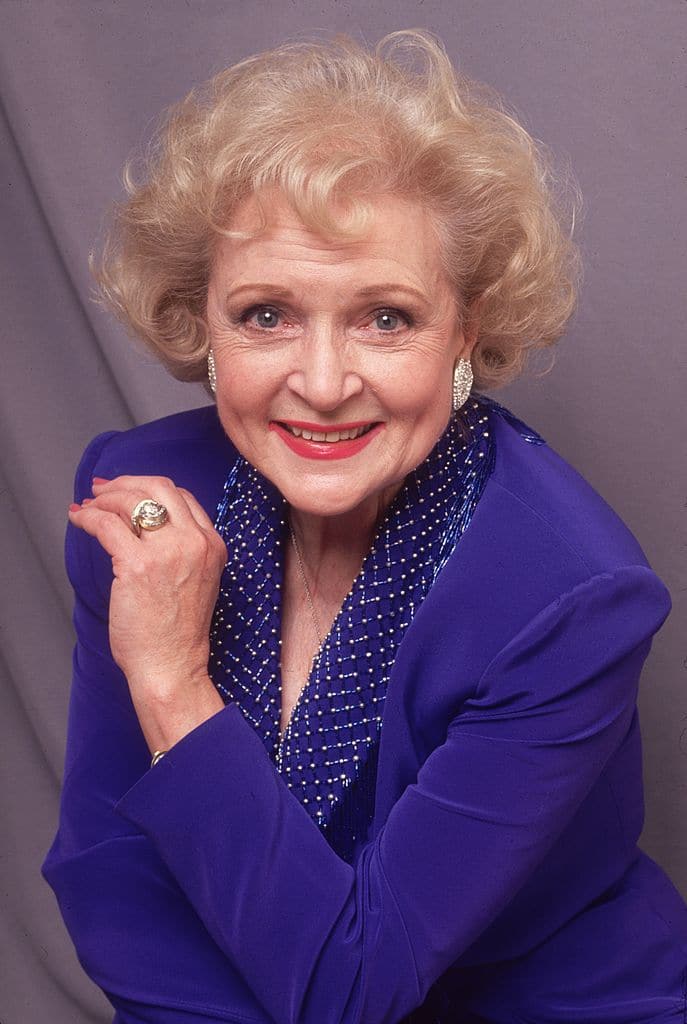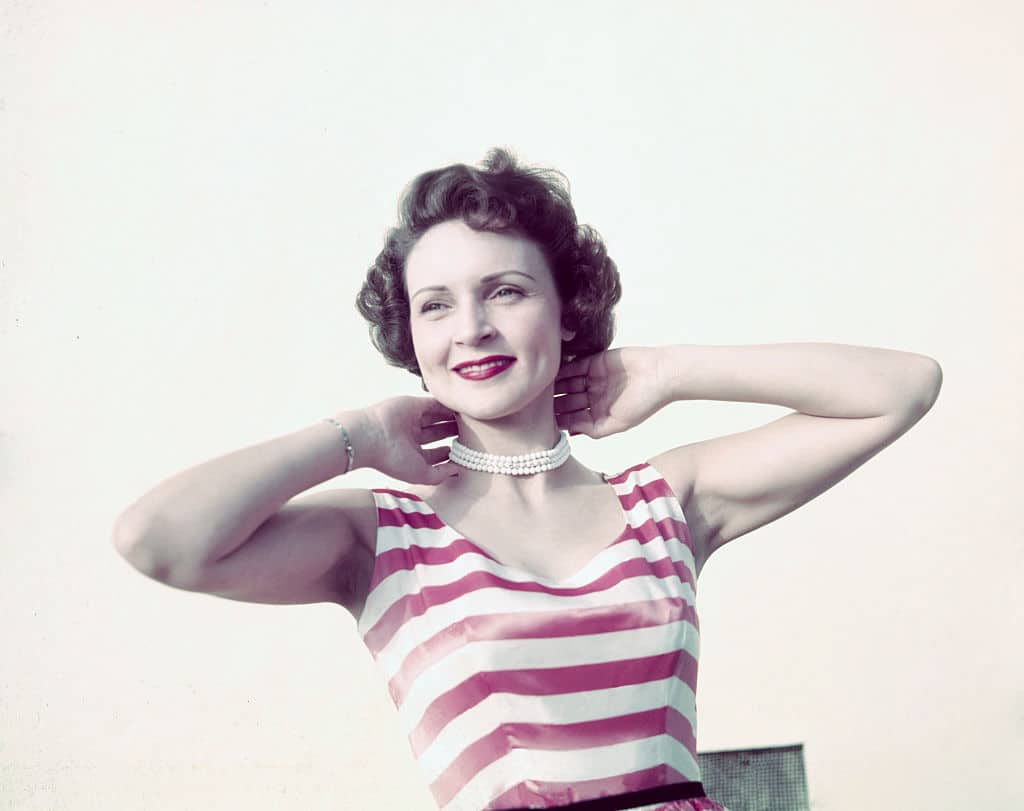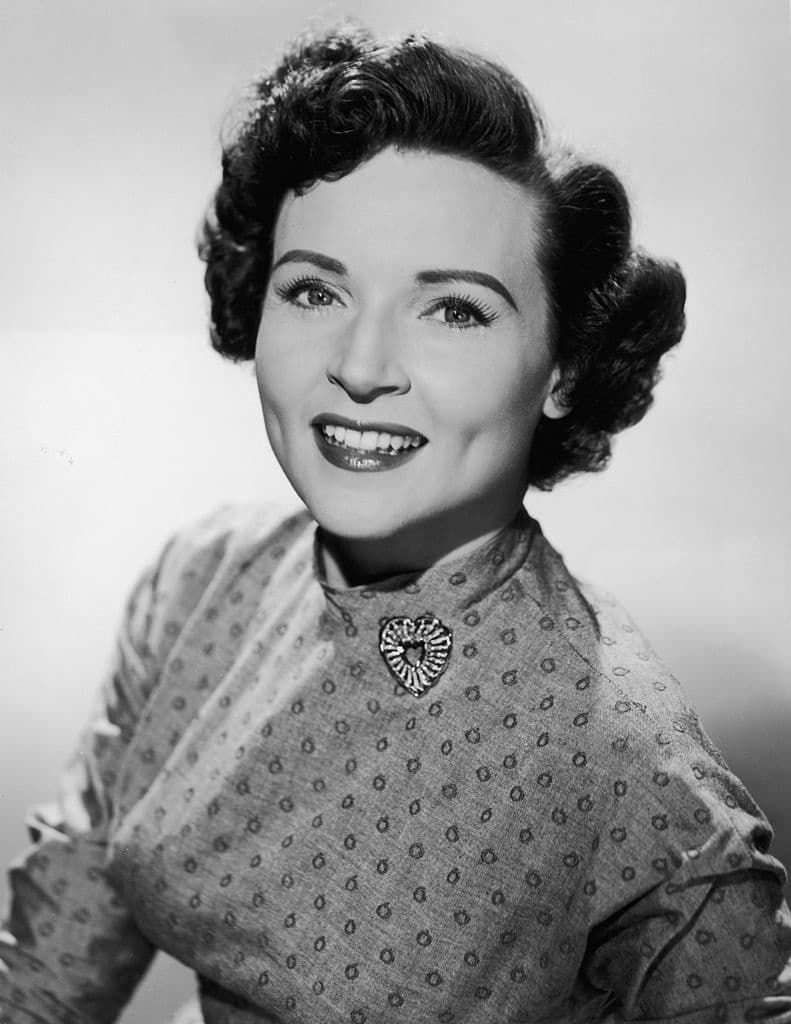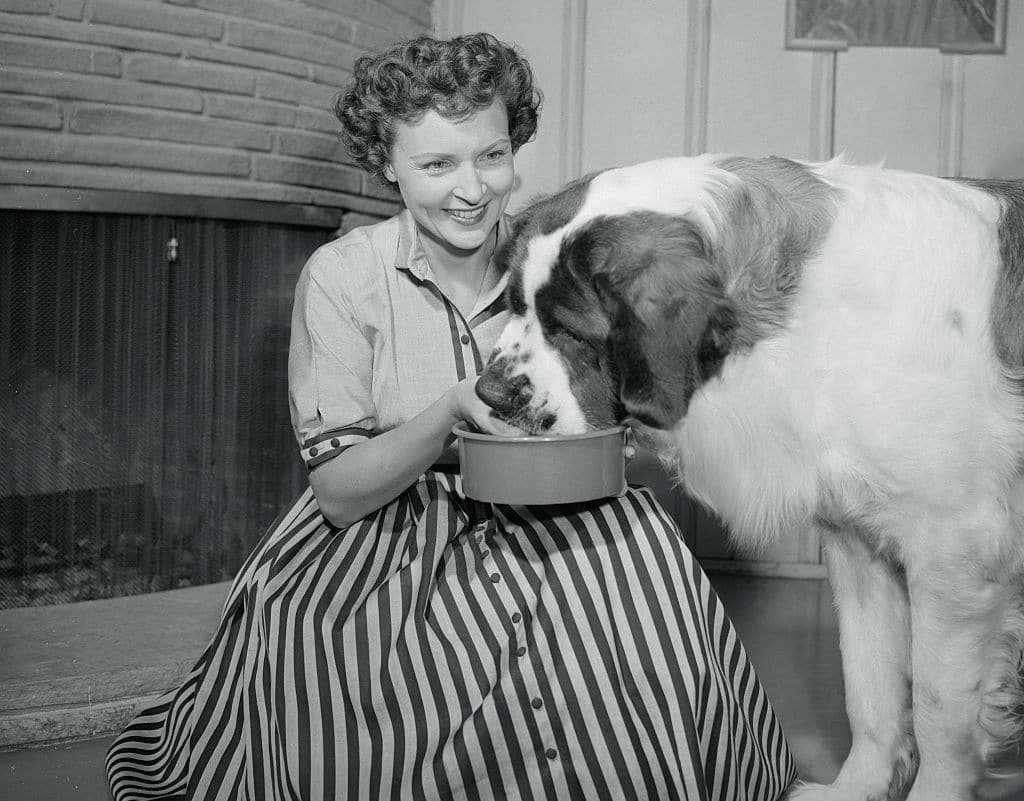8 times icon Betty White proved she was the ultimate LGBTQ+ ally
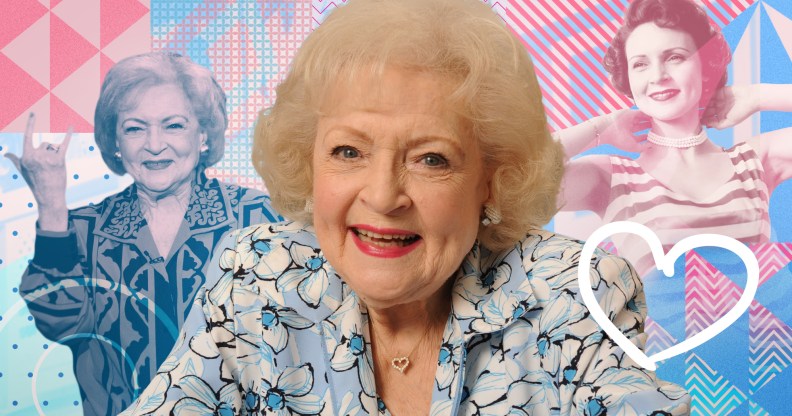
Betty White was a fierce LGBTQ+ ally. (Getty)
It’s been a year since the incomparable Betty White passed away, and it’s still hard to believe she’s no longer with us.
The comedy legend and all-round icon tragically died at the ripe age of 99 on 31 December 2021, and an outpouring of grief swiftly followed.
It’s not hard to see why – over the course of her seven-decade long career, she touched hearts and minds with her warmth and her extraordinary talent.
It was her famously quick wit and her commitment to the art of camp that solidified her position as a gay icon in her heyday – but that wasn’t all. Over the course of her long career, Betty White proved time and time again that she was willing to stand up for the underdog. She cared deeply for her gay fans, and she was a passionate supporter of LGBTQ+ rights.
As the world continues to mourn, we take a look back at eight times Betty White proved she was the ultimate LGBTQ+ icon and ally.
1. Betty White knew it was none of her business who anyone else was sleeping with
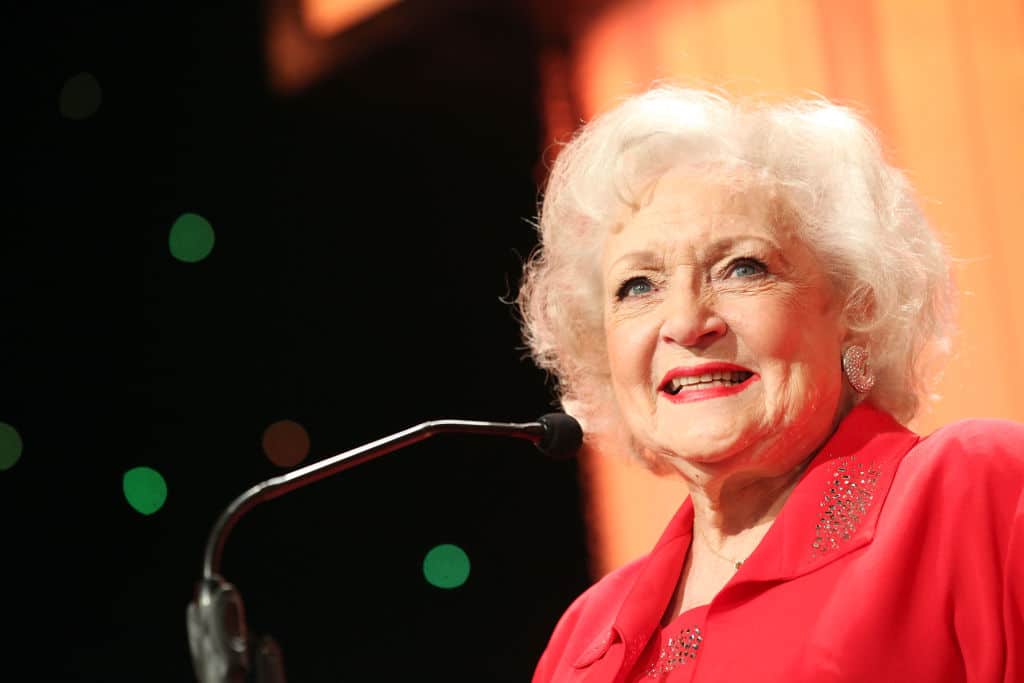
Betty White speaks during the Innaugural American Humane Association’s “Hero Dog Awards” at the Beverly Hilton Hotel in 2011. (Ryan Miller/Getty)
In 2014, Betty White was asked about her support for LGBTQ+ rights in an interview with Larry King.
Her response was absolutely perfect. “Oh, I don’t care who you sleep with, whom you sleep with, it’s what kind of a human being are you,” she said.
Betty went on to explain that she can’t understand those who are against advances in LGBTQ+ rights, adding that it’s “such a personal, private business, and none of mine”.
2. She was a strong supporter of same-sex marriage
In a 2010 interview with Parade, Betty White discussed her affinity with the gay community – and she explained why she believed same-sex couples should have the right to marry.
When asked about the huge popularity of The Golden Girls among gay men, she replied: “Gays love old ladies.”
She continued: “I don’t care who anybody sleeps with. If a couple has been together all that time – and there are gay relationships that are more solid than some heterosexual ones – I think it’s fine if they want to get married. I don’t know how people can get so anti-something. Mind your own business, take care of your affairs, and don’t worry about other people so much.”
3. Betty White helped tackle AIDS stigma in The Golden Girls
The Golden Girls famously tackled social issues in powerful ways over the course of its six season run – and it didn’t shy away from the realities of the AIDS epidemic.
In a 1990 episode titled “72 Hours”, Betty’s character Rose Nylund finds out she may have been exposed to HIV through a blood transfusion. It was one of the first sitcoms to ever mention HIV and AIDS.
In the book Golden Girls Forever by Jim Colucci, Betty said: “Not only were people understandably afraid of AIDS, but a lot of people wouldn’t even admit it existed. So this was a daring episode to do, and the writers went straight for it.”
4. She supported HIV and AIDS causes and helped spread awareness
That wasn’t the only time Betty White dedicated her time to HIV and AIDS causes.
She famously recorded a public service announcement urging drug users people to avoid sharing needles to prevent HIV transmission when the AIDS epidemic was at its height.
She was also a firm supporter of the Elton John AIDS Foundation and other LGBTQ+ rights groups.
5. Betty White stood up against anti-LGBTQ+ bullying
It’s one thing to state your support for LGBTQ+ rights, but it’s another thing entirely to actually do something to support the community.
Betty White was one of those rare icons who did both. In 2013, she changed her name to “Betty Purple” for a day to mark Spirit Day, an anti-LGBTQ+ bullying awareness day, alongside her Hot in Cleveland co-stars.
In a promotional video shared by GLAAD, Betty and her co-stars explained why the initiative is so close to their hearts.
6. Her Golden Girls character was flattered when a woman developed a crush on her
The Golden Girls was notable for many reasons – not only was it a hugely popular sitcom, it was also a rare television show that told stories about women in later middle age.
As if that wasn’t enough, The Golden Girls also had a number of queer characters throughout its run. In the 1986 episode “Isn’t It Romantic?”, Dorothy’s friend Jean develops a crush on Rose. It has been 35 years since that episode aired, but it still feels fresh and original to this day.
Instead of mocking its lesbian character, The Golden Girls celebrated her. Crucially, Rose wasn’t horrified when she learned that Jean’s feelings for her weren’t just platonic.
It was a landmark moment on television, and it’s a storyline plenty of other actors would have refused to have any involvement in in the dark days of the 1980s.
7. She teamed up with Luciana for a gloriously camp music video
Betty White proved she was utterly dedicated to the art of camp in 2012 when she teamed up with British singer Luciana on “I’m Still Hot” in support of The Lifeline Project.
The song is spectacular and hilarious, but the music video is what really seals the deal. In the clip, Betty can be seen donning a purple tracksuit as a cabal of muscled, mostly naked men dance around her.
The song is made even better by all of its glorious references to The Golden Girls.
8. Betty White’s acerbic, raunchy jokes made her a gay icon for the ages
Throughout her life, Betty White was candid about her love of men – and she never missed an opportunity to crack incredible jokes about the opposite sex.
She talked so much about her crush on Robert Redford that it became a running gag. In a touching moment, he released a statement mourning her loss following her death on Friday.
In 2014, she told Larry King that her sex drive hadn’t dimmed in the years that had gone by. She joked that people would find it “disgusting” to think of an “old broad” like her finding men attractive.
“I size somebody up and find him attractive. I don’t do anything about it,” she explained. When asked why she no longer pursued sex with men, she put it simply: “When you’ve had the best, who needs the rest?” She was referring to her late husband Allen Ludden, who died in 1981 at the age of 63.
One thing is for sure: Betty White might have left us, but her legacy will live on. Over the course of her lengthy career, she built a solid LGBTQ+ fanbase – and we know her work and wit will continue to delight generations of queer people to come.
